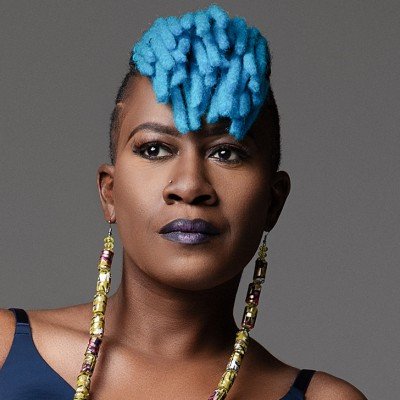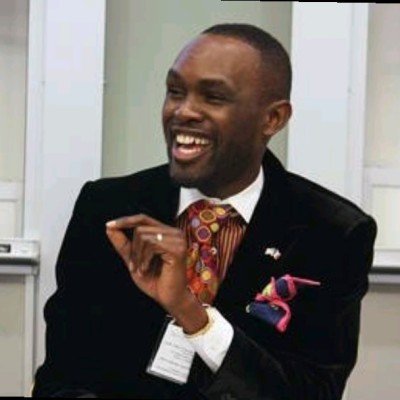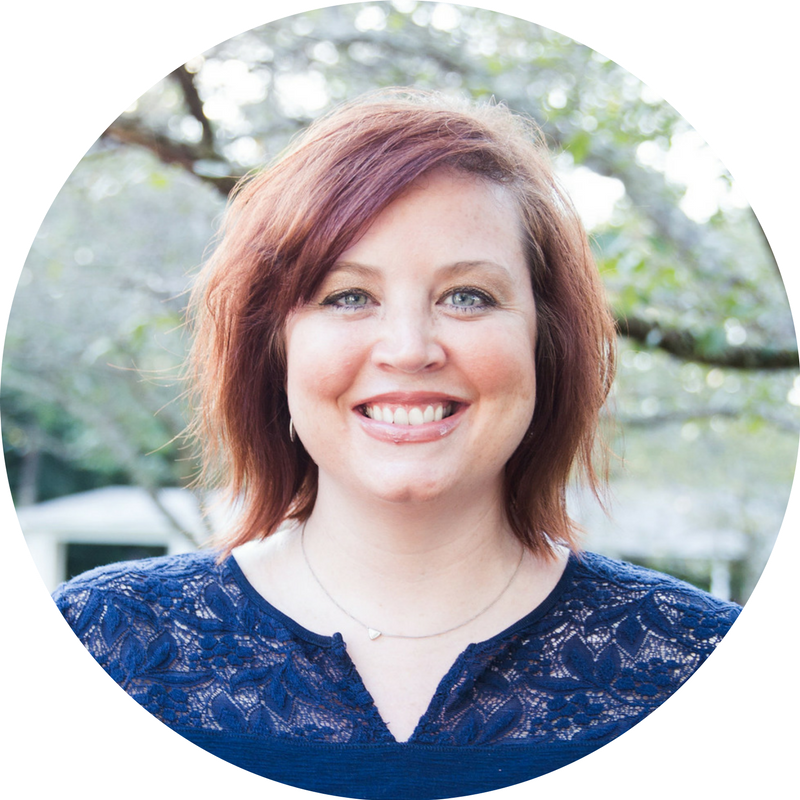Running a for-profit social impact company is a lot of work. You devote your time, funds, and energy to making the world a better place—on top of being an entrepreneur. That is no easy feat! You know your mission is important, and to fulfill it, you need to be seen by others and get their support.
That means you’ll need to achieve some sort of success. But achieving success can look different for different people, social enterprises, and business models. For you (and at this stage), maybe it’s increasing your web or social media traffic and engagement. Maybe it’s hitting a sales, revenue, or impact goal. Or maybe it’s just expanding your team and hiring new, talented people to help spread your mission.
While success can be subjective, we all want to see the fruits of our labor as well as see our impact increase. But how do you do that? To get that answer, I picked the brains of a few social impact business leaders and compiled the top tips that they say contributed to their success. If you’re feeling stuck, use these ideas to get inspired and keep moving forward.
Patricia Chourio - The World’s Corner
The World’s Corner is a fair trade shop offering handmade products crafted by women artisans from ethnic minority groups. They strive to empower women artisans globally and promote the preservation of traditional crafts through strong partnerships.
What helped you achieve success?
I think one of the most profound lessons I've learned since embarking on my entrepreneurial journey is recognizing the importance of stepping out of my comfort zone if I want to achieve meaningful success and foster business growth. Although I haven't yet accomplished all of my business goals, I've come to recognize the value of reaching out to other social entrepreneurs, and the importance of being proactive in seeking external resources to help me in my own personal journey as a solopreneur.
What success did it lead to?
This approach has not only allowed me to build a community that I can rely on but has also been instrumental in navigating the challenges brought by the pandemic and a significant relocation to a different city. One concrete example of this has been a partnership I developed with other fellow Latinas in the sustainability space. In 2020, we launched a project called The Ethical Bridge, to help promote ethical consumerism and elevate the work of women artisans in Ecuador, Mexico, and countries in Southeast Asia. This project has enabled us to reach new audiences, participate in festivals such as LatinaFest two years in a row, and disseminate knowledge and expertise about our collective efforts in this space.
What is your advice for others to achieve similar success?
I truly believe that adopting a lifelong learner mindset is the key to success and can help us advance in any facet of our lives. I encourage other entrepreneurs to stay curious and vulnerable. It's ok to ask questions and reach out for support. You'd be surprised by people's willingness to help!
Melanie Lambert - Just Write Grants
Just Write Grants provides premier grant writing services to nonprofit organizations that want to change the world. They specialize in combining experienced fundraising professionals and the writing and research skills necessary to inspire foundations and corporations to fund your project.
What helped you achieve success?
I recently hired a photographer to take real-life photos of me and other things relevant to my company. For the last five years, I've only used stock photography. For the last month, I used these company-specific, person-focused photos in all of our social media posts, company branding, and marketing.
What success did it lead to?
Since using these photos, we've experienced a MASSIVE increase in social media engagement, open rate for e-campaigns, and website traffic. All of this has led to increased engagement in working with our company and overall growth.
What is your advice for others to achieve similar success?
People connect with REAL people. Investing in this photography has paid off exponentially for us in just a short amount of time (about two months). As a company that works with nonprofits, I highly recommend that our clients work with a photographer to take real photos of their clients, staff, and volunteers in action. We live in such a visual culture, and being able to see your work in action will inspire donors the same way it inspires customers.
Kate Cherichello - Be The Good with Kate
Be the Good with Kate is a podcast where Kate shares all the good news and good people as she can. You can join her each week as she chats with someone following their passions and helping others along the way. (If you need a place to start, Kate featured me on an episode.)
What helped you achieve success?
Belief in myself and my faith, with a lot of thanks to those who have built me up throughout my life, encouraging and trusting me.
What success did it lead to?
The confidence to pursue my dreams, and to continue to follow my passions despite the obstacles along the way. Additionally, it has led me to an optimism in the good that exists around us, and to look to that over the negative.
What is your advice for others to achieve similar success?
It is absolutely worth it to take the time to really dive into what “lights you up” and brings you joy. Then pursue that, reminding yourself along the way of your “why.” Why am I pursuing this path? Why is it meant for me? Why do I face the challenges to get to where I feel pulled to go? The path can and will change and shift along the way as we learn and grow as human beings, but it is so important to listen to our hearts.
David Schwab - Funraise
Funraise is a collection of nonprofit fundraising tools designed to make raising more effortless.
What helped you achieve success?
Back when I was supporting nonprofits in a consultant role, we had amazing success reactivating lapsed donors. By segmenting out lapsed donors from their regular appeals and writing specifically to where the lapsed donors were in their relationship with the organization, we reignited the passion these donors had for the cause and brought them back at a rate the organization had never experienced. At one point, the reactivated donors were the top-performing segment in all categories!
What success did it lead to?
We got to celebrate increased lapsed donor reactivation through segmentation and personalization.
What is your advice for others to achieve similar success?
Don't be afraid to try different engagement strategies, look at your donor data in a different way, and communicate to a targeted audience. You don't need a big group to constitute a “segment”...it can be as small as five donors!
Jenise Steverding - Gifts for Good
Gifts for Good is a woman-owned business and Certified B Corporation dedicated to empowering the world to help people and the planet through gift giving. They envision a world where every gift purchased gives back.
What helped you achieve success?
Hard work, honestly. There is a lot to be said about work ethic.
What success did it lead to?
This really depends on how you define success. For me, it included lay-offs, lessons learned, etc. But I look at success as really being about the impact created. When I look at the impact and see what has been generated at my current company, I'm very proud.
What is your advice for others to achieve similar success?
Don't let perfection get in the way of progress
Ashleigh Poff - Industry Impact Events
Industry Impact offers professional and passionate event coordination and consultation for social impact agencies, boutique brands, and businesses that give back.
What helped you achieve success?
Identifying our company values and staying true to them when selecting clients.
What success did it lead to?
We provide event and project management for socially conscious businesses and have been able to facilitate over $10M in impact value (fundraising, partnerships, job creation, etc.) for our clients who invest in making the world a better place.
What is your advice for others to achieve similar success?
Commit to engaging with others with who you feel true alignment and ease when working together. Creating a personal value statement (that coincides with your business's mission and vision) helps you always come back to check yourself, "Is this client/project right for me?" and will help alleviate future headaches. Trust your intuition and keep loving the work you do!
Elaine Birks-Mitchell - The Bra Recyclers, Inc
The Bra Recyclers is a for-profit social enterprise textile recycling company. They donate underwear to nonprofit organizations around the world and partner with consumers and retailers to responsibly dispose of textiles.
What helped you achieve success?
IT’S ALL ABOUT THE DATA. For example, I have wanted to work with social media influencers but they usually charge quite a bit of money. I met with one influencer and her team, and I had questions about how they could track the success of their campaign and understand the ROI of investing in their services. The team discussed that they could not really quantify their success but could draw some conclusions based on the number of clicks, etc. I showed them what data I collect when people recycle and what data might be valuable to them as influencers, such as the Sustainability Scorecard that provides her with data on the environmental impact of the bras her followers recycle and the equivalency to the prevention of greenhouse gas emissions. Additionally, I was able to show her which platforms and areas of the country the recyclers came from so that she can determine the best call to action.
What success did it lead to?
Once I shared my data with this influencer and demonstrated all I can do to help the impact of her post, her team agreed that they would not charge me their normal fee. Instead, we would exchange data for her to promote me and I would also cross-promote her and provide her with more data. It’s all about the data and offering a value proposition that can help the other entrepreneur grow their business, too!
What is your advice for others to achieve similar success?
Start collecting data as early and as often as you can! It is important for every aspect of your work.
Megan Grant - Cherish Tours
Cherish Tours is a women-owned curated small group travel experience exclusively for women. The best part is that your vacation supports women in business simply by signing up to travel with Cherish. Each hosted travel experience is socially conscious by keeping tourism dollars in the pockets of the local economy.
What helped you achieve success?
Firstly, hiring a business and life coach. Secondly, finding a community of like-minded female entrepreneurs that have supported me in growing my business.
What success did it lead to?
I'm still growing my business. I think success is something that is ever-changing. The success that launching and growing Cherish has led to so far for me is a life I feel proud to live and one that gives me more flexibility to do the things I love. It was always my goal to make an impact in our world and now I get to do that every day.
What is your advice for others to achieve similar success?
Start with something you're good at or that you love. It makes the long road to achieving success much less painful.
Michael Jones - Thrive Farmers
Thrive Farmers connects coffee and tea directly to the consumer and empowers farmers by bringing them to market as partners, not just suppliers, creating a more sustainable income and opportunities for them.
What helped you achieve success?
Focusing on mission/purpose versus money.
What success did it lead to?
Meaningful change and impact in an industry where nothing has changed for decades.
What is your advice for others to achieve similar success?
Find a purpose that is bigger than just profits and dedicate your professional life to that.
Alice Brown - GoodSteps
GoodSteps creates quality, hand-made sandals and products, and provides ongoing funding to nonprofits currently fighting hunger both here and around the world. With every product you purchase, they donate 20% to the giving partner of your choice.
What helped you achieve success?
Keeping my eyes on the "prize," which in our case is feeding hungry and food-insecure people locally and around the world. Of course, I would love to help every single person in need, but no matter what we achieve, we are making an impact!
What success did it lead to?
Success is first and foremost cutting that quarterly check to our giving partners and knowing the impact we and our customers are making in the fight against hunger and food insecurity. What more could we ask for as a business built upon a mission to fight hunger?
What is your advice for others to achieve similar success?
Pick a version of success that is not only achievable, but also aligns with your motivations, and you can't lose!
Wanona Satcher - Mākhers Studio
Mākhers Studio is a green manufacturing and design-build firm that specializes in unique, rapidly-deployed modular real estate with purpose and market-rate returns.
What helped you achieve success?
Key connections from those outside of my industry.
What success did it lead to?
Funding.
What is your advice for others to achieve similar success?
Step out of your subject expertise and align with those that can bring new ideas and perspectives to the table.
You’ve already reached a version of success because you lead a company dedicated to serving a higher purpose. Whatever additional success you define for yourself and your business, you got it! Now it’s time to incorporate some of this expert advice so that you can achieve your next goal. I’m cheering you on!
PIN THIS POST FOR LATER:
I'm Kristi Porter, and I started Signify to help small nonprofits and for-profits with a social mission get noticed and grow through effective marketing and communications. I also teach solopreneurs and small businesses how to incorporate philanthropy and giving strategies. I believe that cause-focused organizations like yours are the future of business. You're proof that companies can both make money and do good. And I'm here to make sure you focus and shine. When you succeed, we all win.














































